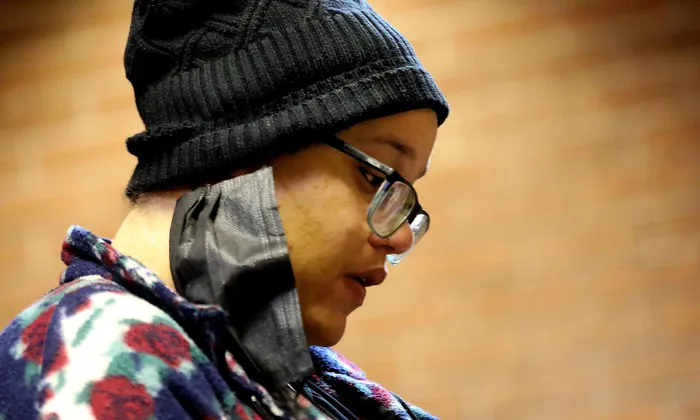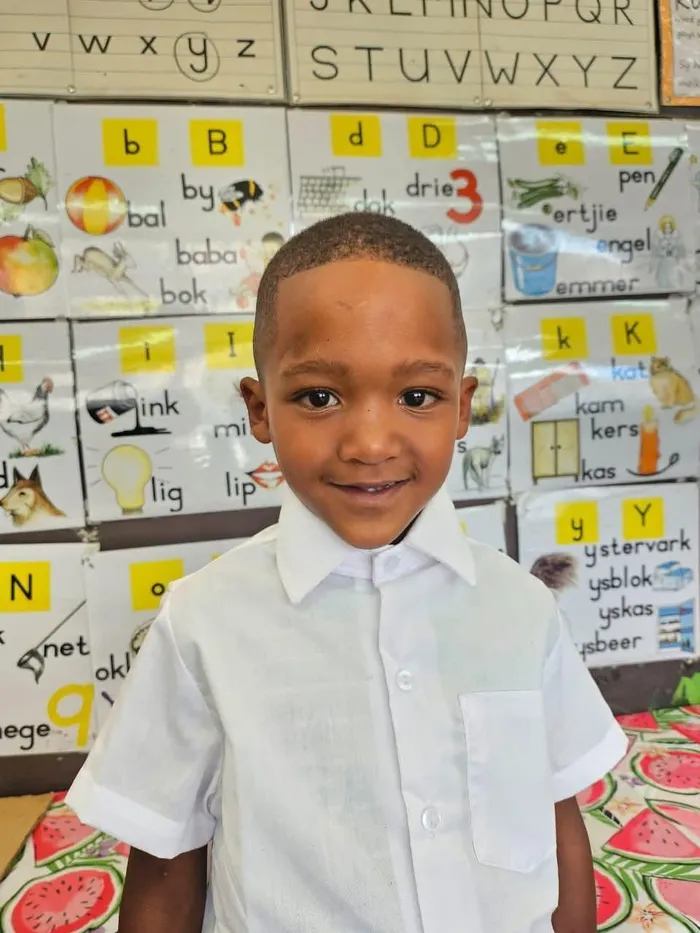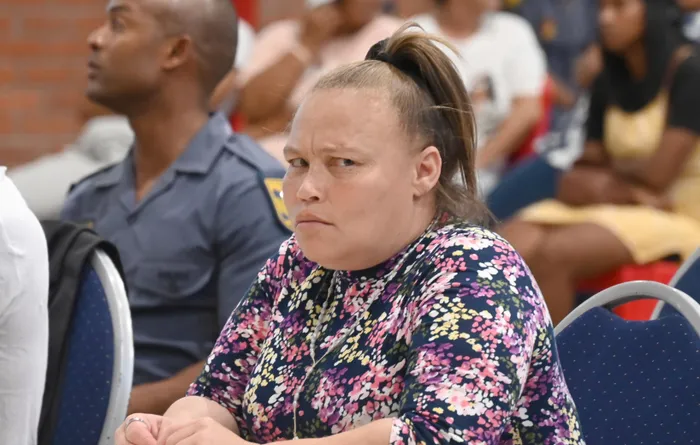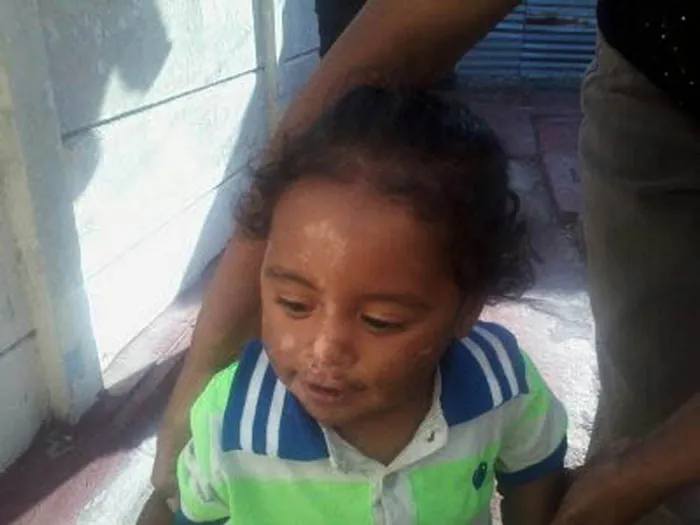Inside the mind of a killer mother: what drives women to murder their own children?

The court papers have revealed that 11-year-old Jayden-Lee Meek, allegedly died in the hands of his mother
Image: Timothy Bernard/ Independent Newspapers
The gruesome and heartbreaking murder of 11-year-old Jayden-Lee Meek has reopened a dark and painful question: what causes a mother to murder her own child?
Jayden-Lee’s body was discovered in May at a residential complex in Fleurhof, Johannesburg.
His mother, Tiffany Nicole Meek, who initially appeared to be a grieving parent, now stands accused of his murder, crimen injuria, and defeating the ends of justice. The horrifying allegations have not only shattered public trust but also drawn renewed focus to a string of similar incidents across South Africa.
“From the beginning, this case raised serious concerns about the circumstances of his death,” said Siya Monakali of Ilitha Labantu. “The formal charges against the mother now confirm the worst fears that another child has allegedly been killed by the very person who should have protected him.”
Jayden-Lee’s case is part of a disturbing pattern. Earlier this year, two-year-old Kutloano Shalaba was allegedly sold to a sangoma by his mother for R75,000.

Jayden-Lee Meek was murdered outside his home after failing to come home on 12 May 2025.
Image: Supplied
In Oudtshoorn, Drezene Jonkerman strangled her seven-year-old son "after seeing the reflection of his father's face on him".
In KwaZulu-Natal, a teen mom was arrested after her baby was found with a gunshot wound to the head.
In the Western Cape, the mysterious disappearance of six-year-old Joshlin Smith eventually led to her mother’s conviction for trafficking.
There is also the case of 18-month-old Jeremiah Ruiters, whose mother Abigail was found guilty of child abuse, after the judge found that she failed to protect him, allowing her then boyfriend Ameeroedien Peters to continuously abusing her boy.
Peters was convicted for the rape and murder of Jeremiah.
These crimes point to a deeper societal crisis. According to Calvin Rafadi, a renowned crime expert and research associate at the University of Johannesburg, filicide is rarely an act of spontaneous violence. It is often premeditated, masked by deception, and influenced by underlying psychological and societal factors.
“Some of these women suffer from untreated mental health issues, others are addicted to drugs or alcohol, some commit these crimes for ritualistic purposes. In certain tragic instances, it’s driven by revenge or unresolved conflict with the child’s father,” said Rafadi. “They may even claim that the child reminds them of the father, triggering horrific GBV acts.”

Drezene Jonkerman
Image: Supplied
He warned that a growing number of mothers are not just emotionally unstable but dangerously manipulative presenting themselves as victims to avoid suspicion and derail investigations.
“This deceptive modus operandi is not new. It has been seen in cases involving insurance fraud and life cover schemes,” Rafadi explained. “Some of these crimes are planned in isolation just the mother, or sometimes with a boyfriend or traditional healer making it nearly impossible to detect before it’s too late.”
From a forensic standpoint, Rafadi said the impact of these cases extends beyond the courtroom.
“Forensic teams and investigators often carry the emotional burden of these scenes. Performing autopsies on babies or visiting murder sites involving children, takes a heavy toll, even on seasoned professionals.”

Ashwin Jonkerman, 7.
Image: Supplied
He also highlighted a troubling double standard in how justice is served.
“The justice system typically refers women accused of these crimes for psychiatric evaluations, which often influences sentencing. When a man is accused, it’s treated as premeditated murder. That discrepancy raises serious questions about gender equity in the legal system.”
Rafadi stressed the importance of early education in preventing such tragedies.
“We need to educate young women about the responsibilities of motherhood. In many townships and rural communities, girls fall pregnant for the sake of accessing child grants. These children are often left in the care of elderly grandparents or even abandoned, leading to severe neglect and sometimes worse.”
He added: “We must recognise that filicide is not only a personal or family tragedy. It’s a national crisis rooted in systemic failures social, economic and institutional.”
Celeste Louw, General Manager of Operations at the TEARS Foundation, agreed that there is no one cause.

Kelly Smith
Image: Ayanda Ndamane/Independent Newspapers
“Usually, it is a mix of emotional, psychological, and social pressures. Many mothers who harm their children face severe mental health challenges such as depression, psychosis, or trauma from their own childhood. Many have also experienced domestic violence,” she said.
Louw added that stigma around mental illness and unrealistic expectations of mothers often leave women feeling isolated.
“When silence combines with a lack of support, stress can spiral out of control. Warning signs like emotional withdrawal, extreme stress, or a history of mental illness are often dismissed as normal parenting stress,” she said.
“Mental health services are underfunded, support is hard to find, and early intervention often doesn’t happen. This leaves too many mothers without the help they need,” Louw added.

KILLED: Year-old Jeremiah Ruiters Jeremiah Ruiters' mother Abigail was convicted for child abuse after the judge found that she failed to protect him, allowing Peters to continuously abusing her boy.
Image: File
She stressed the importance of practical support, including helplines, trauma-informed care, and training for teachers and healthcare providers to spot the red flags early.
“If a child reports abuse, it must always be taken seriously. The law is clear, but these failures still happen due to lack of understanding and implementation.”
Rafadi echoed this urgency.
“If we fail to intervene early, we are complicit in the loss of innocent lives. Community-based support, education, and legal accountability must go hand-in-hand. Our children are paying the price for a system that repeatedly fails them.”
If you or someone you know needs help, contact the TEARS Foundation’s 24/7 toll-free line: 0800 083 277.
tracy-lynn.ruiters@inl.co.za
Weekend Argus